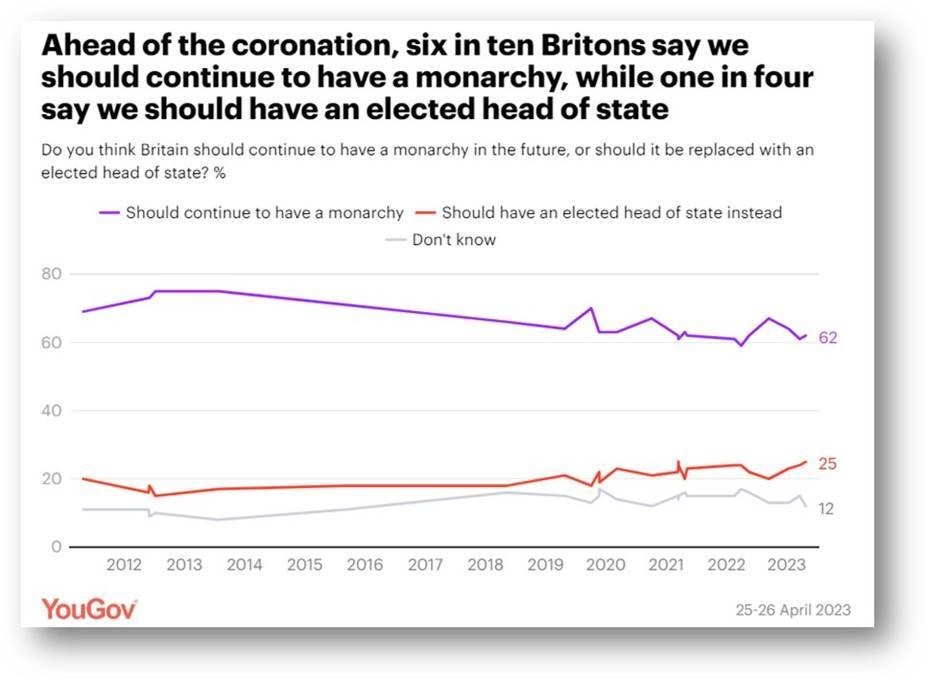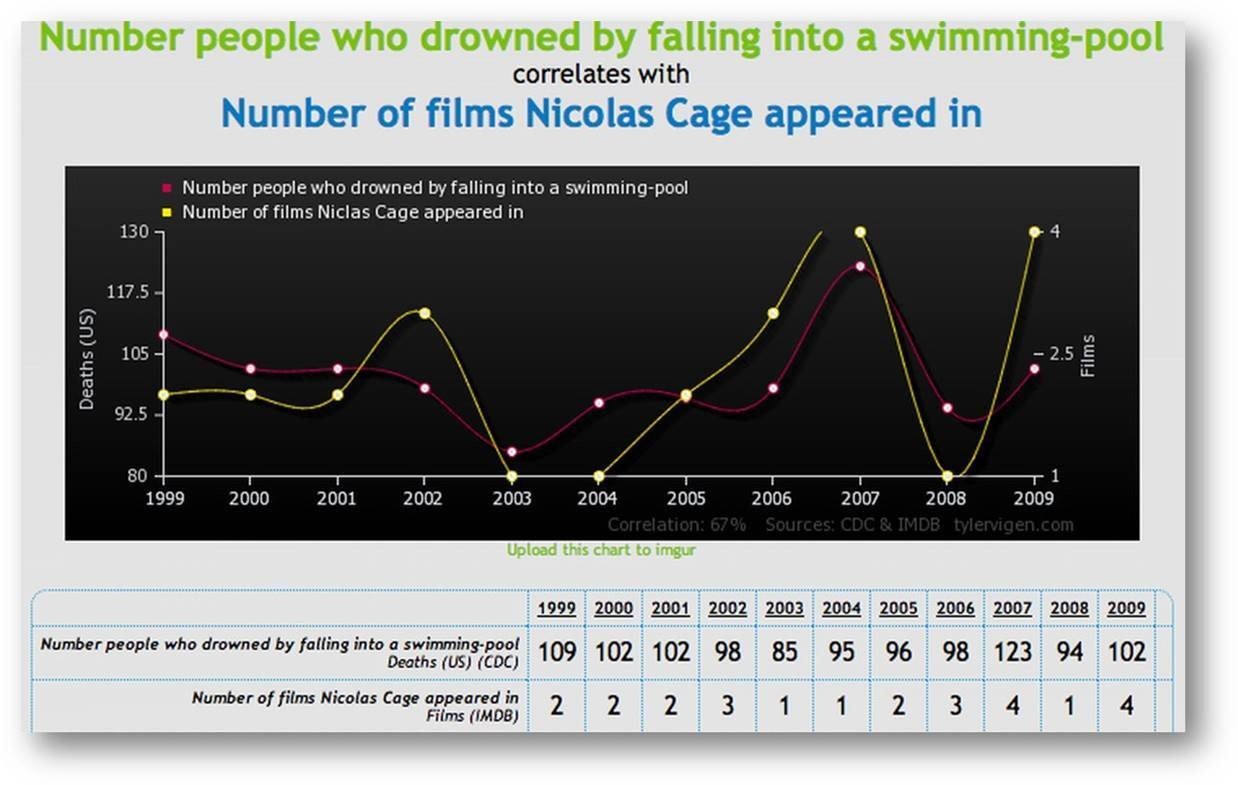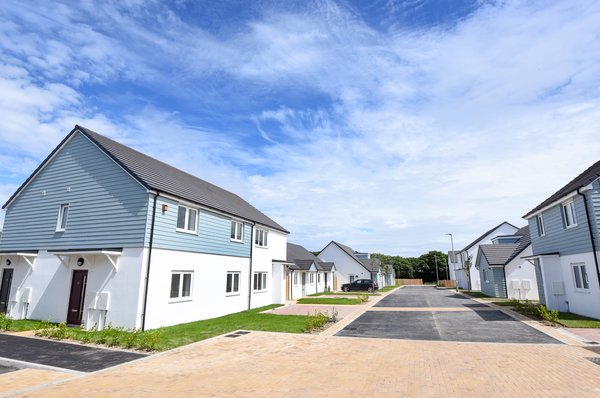Cause and effect. Correlation and causation. Sounds simple, but it’s more complicated than it appears at first glance according to Allister Young, CEO of Coastline Housing. In this opinion piece he takes us through a journey of things to ponder – touching on topics including the British monarchy, Nicholas Cage films, our inbuilt ability to spot patterns and the Social Housing Regulation Bill.
We’re now coming up to a month on from the Coronation of King Charles on 6 May. The Coronation was one of those events that got almost everyone’s attention. For many, it was a day of celebration, for some, it was a day to protest.
Here in the UK we have what is called a ‘constitutional monarchy’, where the royal family hold public office and are part of the political process, but don’t get to make decisions by themselves (“they reign but do not rule”).
Opinion polls continue to show that a clear majority of people in the UK are in support of the Royal Family (even if that support has reduced over time), with one the reasons being that people see it as a solid, stable form of government that helps us have a solid, stable society and provides a platform that helps our economy succeed.
But does it? What I’d like to talk about in this opinion piece is correlation and causation (‘cause and effect’). How changing one thing can impact on something else. Why it’s more complicated than it seems at first glance. And I promise, while I’m starting by talking about the Royal Family, it does have something to do with housing!

So why is figuring out ‘cause and effect’ complicated? The main problem is that as humans we have evolved to spot patterns in the world around us. This has been essential to humans’ success over many thousands of years, as it has helped us to learn lessons and adapt. But sometimes, our desire to find patterns means we think things are linked, but what looks like a link is just coincidence.
For example, it’s possible to find what looks like a link between drowning in swimming pools, and the number of films Nicolas Cage appears in. But unless people are throwing themselves into swimming pools in despair because they don’t like Nicolas Cage’s acting style, the two things aren’t likely to be linked. There’s no real correlation, just coincidence.

Sometimes, when things are actually linked (unlike Nicolas Cage and swimming pool deaths), it’s obvious what causes what. For example, you see more people using umbrellas when it’s raining.
But it’s pretty obvious that the rain causes people to use umbrellas, and it’s not that using umbrellas in some way magically attracts water from the sky.
But sometimes it’s not so obvious. Back to the monarchy.
It’s been observed that countries with ‘constitutional monarchies’, like we have, tend to have better economic growth. And the seemingly logical conclusion people took from this was that a constitutional monarchy provides stability and certainty, which helps economic growth. But more recent research suggests it’s actually the other way round.
Countries that have good economic growth, where people feel like things are going OK, are much less likely to see people ‘rise up’ to overthrow the monarchy. Basically, bad economic growth can lead to unhappy people, and if they get unhappy enough, you can end up with a revolution, and then it’s ‘bye bye’ to the monarchy.
What does this have to do with housing? It’s about decision making. If you want to make the best decisions, you have to try to understand cause and effect. If we do this, what will happen to that.
I’ve seen an example of this not working well recently. In the new Social Housing Regulation Bill (still making its way through parliament six years after Grenfell), the government is requiring social housing providers (like Coastline) to make sure its staff are all suitably qualified, and in particular that ‘senior managers’ have professional housing qualifications.
Now, this might be a good idea. But as is frustratingly common with governments, it was brought in at the last minute. And no one has done any research to see if it is likely to work. To figure out whether having professional qualifications is likely to lead to better quality homes, better quality customer service, or higher levels of customer satisfaction.
Now, part of figuring this out would be tricky. If you did the research and found that there was a correlation: that organisations where more people have professional qualifications have higher levels of customer satisfaction, how would you prove that it was having the professional qualifications led to higher levels of customer satisfaction? How could you be sure that it wasn’t the other way round? It wouldn’t surprise me if an organisation that was focused on quality customer service was more likely to invest in professional qualifications for their staff.
But government hasn’t even done the easy bit. There hasn’t been any research to see if organisations that have more people with professional housing qualifications have higher levels of customer satisfaction. And that frustrates me. It would be easy, cheap and quick for government to get the data. And it’s going to be hard, expensive and time consuming for the social housing sector to implement the changes being introduced by the new law.
And while the proposal seems on balance to be good idea, there will be some unintended consequences along the way. Some organisations will end up spending time and money looking inwardly rather than focusing on their customers. Some skilled and experienced people will leave the sector.
Here at Coastline we’ve already invested over the years in professional qualifications for colleagues, so the impact of the new law won’t be huge for us. But I think we all deserve to live in a world where the potential impact of proposed changes is properly thought through before it is implemented. A world where people that set the laws that govern us have given proper thought to ‘cause and effect’.
Allister Young, CEO of Coastline Housing
